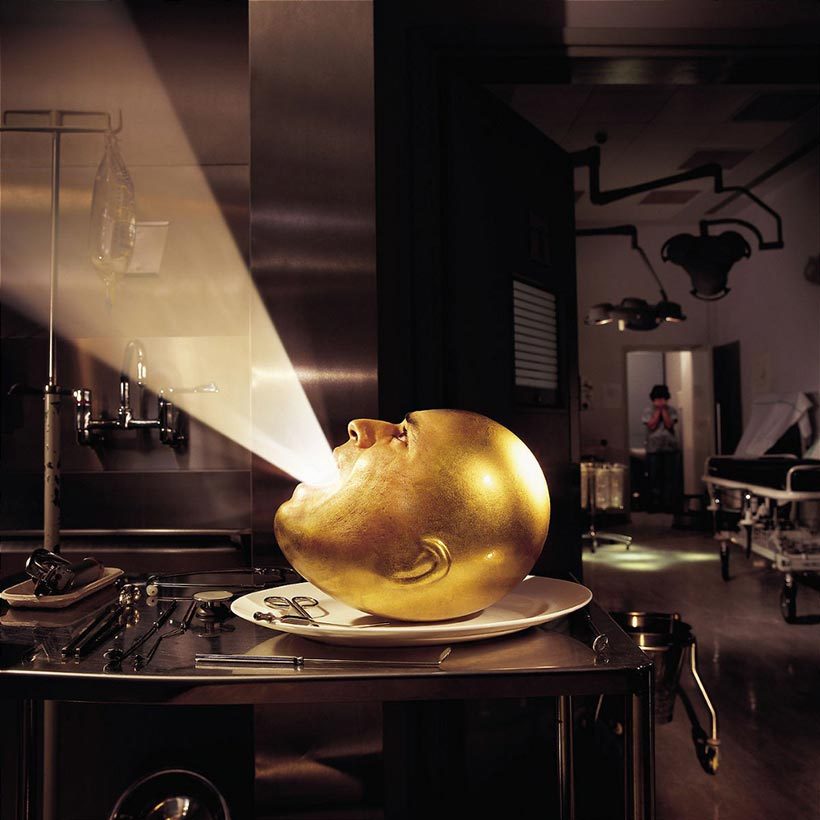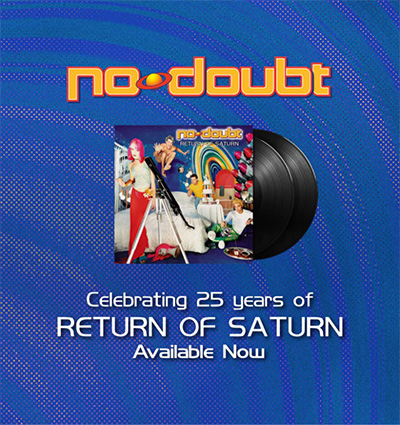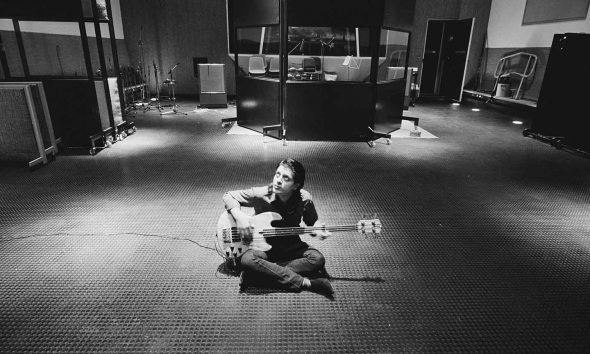‘De-Loused In The Comatorium’: The Mars Volta’s Ferocious Prog Breakthrough
From the ashes of At The Drive-In, The Mars Volta brought a punk spirit to prog on their sprawling debut album.

At the end of the 20th century, At the Drive-In quickly rose to become one of the most beloved punk rock bands of the era. Their blend of post-hardcore, emo, and elements of art-rock made them a refreshing voice at a time when pop-punk was starting to percolate. But the El Paso outlet was short-lived, and the group split in 2001. From its ashes, however, rose The Mars Volta, comprised of drummer Tony Hajjar, guitarist Omar Rodríguez-López, and vocalist Cedric Bixler-Zavala, whose finest hour remains their debut album, De-Loused In The Comatorium.
Listen to De-Loused in the Comatorium now.
Though ATDI had numerous reasons for their split, The Mars Volta provided Rodríguez-López and Bixler-Zavala a new creative avenue to explore a sound bigger and bolder than anything they’d done before. Quickly, the band knocked out an EP with Alex Newport titled Tremulant, a three-song collection that became the precursor to De-Loused In The Comatorium.
An epic, hour-long tale in the prog tradition
With the foundation laid by Tremulant, the band’s highly anticipated follow-up would surprise even further with its smattering of sounds. Cooked up by Bixler-Zavala and Jeremy Michael Ward, De-Loused in the Comatorium was conceived as a concept record that centers around a character called Cerpin Taxt. Taxt overdoses on a cocktail of morphine and rat poison and enters a week-long coma during which he experiences fantastical adventures in his dreams. The character was loosely based on Bixler-Zavala’s friend Julio Venegas, who killed himself in 1996.
The result was an epic hour-long tale in the prog tradition. As Taxt battles with the good and evil impulses of his subconscious, Bixler-Zavala’s howling tenor gives voice to the wild lyrical imagery on display.
Co-produced by guitarist Rodríguez-López alongside legendary producer Rick Rubin, De-Loused In The Comatorium was unlike anything Rubin had worked on in his career – and that’s saying something, considering his wildly eclectic set of credits.
Prog rock has a rich tradition of grand concept albums. Look no further than 2112 by Rush or The Lamb Lies Down On Broadway by Genesis as evidence. The Mars Volta brought their own flair to it, embracing the genre and reimagining it as well.
Taking things to another level
With this new take on prog, De-Loused In The Comatorium provoked a divisive response among fans and critics. The band’s incorporation of Latin rhythms, jazz fusion, space rock, and experimental music made it a record that wasn’t fully digestible upon first listen – it’s one of those rare albums that reveals something new with each spin.
“Roulette Dares (The Haunt Of)” features extended instrumentals in the Floydian tradition, while “Drunkenship Of Lanterns” embraces prog’s cinematic drama thanks to the pummeling drums of Jon Theodore, and Red Hot Chili Peppers bassist Flea, who stepped in after The Mars Volta’s original bassist, Eva Gardner, left. Flea rose to the task, learning and recording the album’s bass parts in the span of three days. Flea wasn’t the only RHCP alum on the album. His bandmate John Frusciante also makes an appearance, with an extended guitar solo on the album’s longest track, “Cicatriz ESP,” a 12-minute musical journey across which The Mars Volta proved their mettle.
The way the song swivels, pivots, changes tempos, and even weaves in extended jams proved The Mars Volta’s potential extended far beyond what any At The Drive-In fan would have anticipated. The gradual, yet drastic build had all the hallmarks of their former outfit, but Rodríguez-López’s willingness to take it to another level is what ultimately set the course for where the band was headed. Later on, multi-instrumentalist Justin Meldal-Johnsen filled in on double bass for “Televators,” adding to the group’s impressive line-up of guests.
Pushing prog in a different direction
No matter where you stand on prog-rock, De-Loused In The Comatorium helped to push the genre in a different direction and bring it to a new generation of fans, opening the door for fellow-alt.proggers like The Dear Hunter and Thank You Scientist in the process.
The Mars Volta was really a reaction to At the Drive-In. Looking to break free from the limitations of the hardcore scene, the band exploded on their debut album with all the pent-up ideas and emotions that needed an outlet. Ultimately, they would be rewarded for their gamble. The group later took home a Grammy in 2009 for Best Hard Rock Performance for “Wax Simulacra.”












